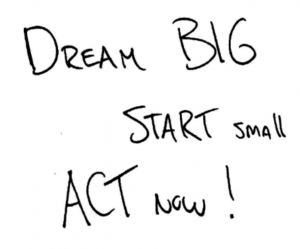Strategy #2: Create a Vision & Your Heroic Code
Why Create a Vision & Heroic Code?
1. Creating a vision and heroic code is a powerful step toward being the author of your life.
2. It will go a long way toward answering (for yourself and others), the question, “Who am I?”
3. It is a commitment to your best.
4. It will provide guidance regardless of any chaos or confusion going on around you.
5. Living guided by a vision and code is dramatically different than living without them.
"The moment one definitely commits oneself, then providence moves too. All sorts of things occur to help one that would never otherwise occurred. A whole stream of events issues from the decision, raising in one's favor all manner of unforeseen incidents and meetings and material assistance which no man could have dreamed would have come his way. Whatever you can do or dream you can, begin it. Boldness has genius, power and magic in it. Begin it now."
Johann Wolfgang von
Goethe
Five Key Things to Keep in Mind in Creating Your Vision
There are a few things to keep in mind as you develop your vision. They also apply to creating your heroic code.
1. Focus on “Want” not “should”
” Your vision and your heroic code are what you want to be and how you want to act – not what you think you should be or do. You can certainly listen to others, but in the end, it’s your life and your choice.
2. Stretch Yourself
A vision is future oriented. You can have a vision that seems unrealistic now, simply because there is no way to know what you will be capable of in the future. So, don’t be too limited by what seems possible now. You can always pull back, so don’t be overly restrictive when you begin.
3. Don’t Worry About “The Gap”
Don’t worry about the gap between who you see yourself as now and who you want to be – that’s the reason it’s a journey. It takes time, effort, and perseverance, but the gap will close and you can celebrate as it does. This tension around the initial gap often keeps people from creating their vision – or holding to it. Don’t let it stop you. It’s a natural part of the process.
4. It Takes Courage – & Develops Courage
Commitments take courage. It takes courage to say what’s important to you , simply because you’re saying, “This is who I want to be.”Once you say that, you’re vulnerable to two things. One is simply seeing the gap between who you are now and who you want to be (noted above). That can be tough, although you will probably find that you are already living part of or much of your vision.The other vulnerability is running into barriers or pitfalls along the way or encountering setbacks. Those are inevitable, but they can hurt if they get in the way of something that you have declared is important.

5. It’s Not About Perfection
Your vision does not have to be perfect – it needs to be a start and then you can refine it as you go and gain experience about yourself and the world. An imperfect vision is much better than no vision

Creating Your Vision – Where Do I Start?
You Don’t do this in One Sitting
Creating your vision is not something to grind out, so you can say it’s done. Creating your vision is a reflective process that you will engage in, walk away from, come back, etc. It’s a process that helps you determine what’s important to you. It’s a major part of being the author of your life, so don’t rush it – and be curious.
Just Start Generating Elements in Your Vision
The key is to just start and find as many qualities and characteristics or end points as you can. Once you’ve collected all those, you can start to weed some out, see where patterns or similarities might be, and see where there are some gaps you want to close.
There is no single “right way” to do this. Don’t be surprised if you start here and then find a way that works better for you.
There are some natural starting points, but you can really start anywhere. You can play and experiment and see what starts to emerge. It’s not a test or an assignment to “finish.” This is you thinking about a critical part of your life, so just be reflective and thoughtful. As usual, talking with others can make a big difference.
Sometimes it’s helpful to have sentence stems to start with, so here are some to try. Use whatever sentence stems are useful and add any others that work for you.
Two starting points are noted below – each using sentence stems to help stimulate thinking. They are just starting points, so use them to start, but don’t be limited by them. There is no formula for this.
Starting Point #1
For this starting point, just imagine yourself at any age you choose and imagine how you and your world might look. There are sentence stems here also. Use the ones that are useful, but don’t be limited by them. Most of these sentence stems don’t refer to specific parts of the site, but they should stimulate your thinking.
“When I am 21 years old…..” (or any age you choose)
- My relationships with friends are…..
- My romantic relationships are…..
- At school I am…..
- On my teams or in my organizations I am…..
- In the military I am…..
- At work I am…..
- In my community I am…..
- In my faith community I am…..
- The things I am competent at include…..
- My family is…..
Note. You can choose the age you want for your vision. If sixteen or eighteen are better target ages, then use them. This is your vision, so it’s your choice. Do what works for you.
Starting Point #2
For this starting point, you can refer to any of the worksheets (“thought catchers”) that you used in the section on three core challenges or the journey. If you haven’t used the worksheets yet, you can check those sections and review what’s there, particularly the sample lists of values, characteristics, etc.
You can add these thoughts to those in starting point #1
“I am a person who….”
- Has these values….
- Is known for these personal characteristics….
- Has a sense of purpose (which is…)
- Has become competent at….
- Has established relationships that are….
- Has become….
Just Start
Your first vision doesn’t need to be a great work of art. It just need to get you started. If you continue to pay attention to it, your vision will evolve. You can always add new elements or details, change elements, drop elements, etc. Just start.
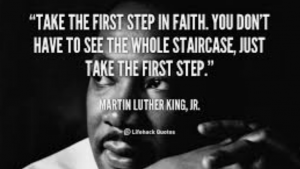
More powerful than the will to win is the courage to begin.
Anonymous
Staying on the Path to Reach Your Vision – Keep it Simple
This is a journey, so persevering and “learning the way” are key. Creating a clear and compelling vision is no exception. Once started, your vision will guide you and evolve with experience. As with most things on the journey, tracking your progress and learning as you go is essential.
This is a matter of being curious about the experience and what to do next. It is not a matter of judging yourself. There is a simple set of three questions you can ask yourself that will keep you in the role of author and give you a lot of influence over your experience.
These question work for an individual. They work even better if you share with others and talk with others about your experience pursuing your vision. Check every two-three months (or whatever works for you).
1. What are little wins to celebrate?
2. What have I learned (about myself, about others, about life, about barriers and pitfalls encountered, etc.)?
3. What do I want to keep doing, start doing or stop doing?
“One’s vision is not a road map but a compass.” Peter Block
“Real heroes are men [and women] who fall and fail and are flawed, but win out in the end because they've stayed true to their ideals and beliefs and commitments.”
Kevin
Costner
Barriers to Starting
There are a bunch of natural barriers to even getting started on creating your vision. The key is to acknowledge these barriers and then refuse to let them stop you from beginning.
- “I just don’t want to get into this.” I’m busy. I’m depressed. No one I know is doing this.
- Anxiety around committing and being “visible” to myself and others about what’s important to me and who I will be.
- The gap between where I am and where I want to be – so much to develop and it is a long journey.
- “I can’t see all of the path to get to my vision. What if I don’t get there?”
- Worrying about whether it’s a good vision.
Hold the vision, trust the process.
Anonymous
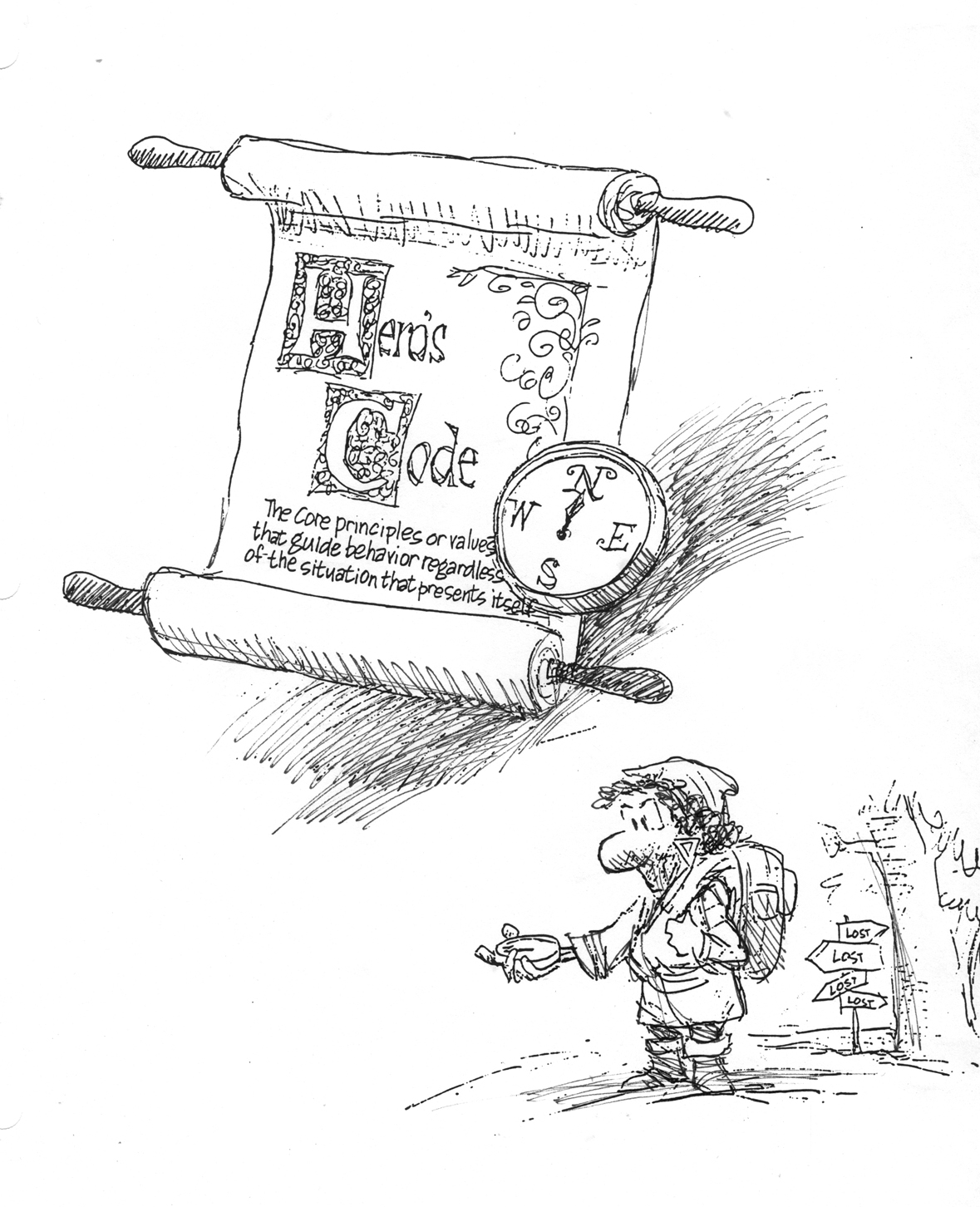
Create Your Heroic Code
(Courage to commit)
“The greatest danger for most of us is not that our aim is too high and we miss it, but that it is too low and we reach it.”
Michaelangelo
A Heroic Code is Surprisingly Important
It is a key part of being the author of a life and it is an acknowledgement that you matter – who you are and how you conduct yourself matters.
Your heroic code makes a big difference throughout the journey and it makes a particularly big difference in the middle of the journey when it can be confusing and frustrating or scary. It serves as a compass to help keep you on the desired path.
“Trust yourself. Then you will know how to live.”
Johann Wolfgang van Goethe
What is A Heroic Code?
A heroic code is the philosophy you have about life and the way you want to live it. You determine what defines you. Your heroic code helps answer the question, “What are the behaviors, values and principles that I choose to live by?” A heroic code influences attitudes, words, actions, and decisions.
Your Heroic Code can Simplify Your Life
You will know who you want to be in almost any situation. Your code will draw forth your best without you having to think about it
It is Your Code
Your heroic code is your code – how you choose to live your life – not something imposed by anyone else. It works with your vision to draw on your best.
A Note on Stumbles
Although living by a heroic code draws forth your best and provides quiet guidance in almost any situation, it is not always easy to live by a code. No one always lives up to their heroic code. We all stumble. We all lose our way at times. A code will, however, play a major role in helping you be who you want to be and get back to that when you stumble.
Organizations Also Have Codes
Most organizations also have some combination of missions, visions, values or codes of conduct that help define who they are and what is expected of their members.
Some live up to their commitments and some do not. For those that make the commitment to “hold the course”, they usually find that these commitments provide a powerful foundation and culture and result in higher performance.
“It’s not who you are that holds you back, it’s who you think you are not.”
Author Unknown
Commit to a Heroic Code
Living by a code may sound strange or old fashioned, but it is a pretty central part of a life well-lived.
Forming a Heroic Code
The chapter on forming an identity as a young adult in the section on the three core challenges can provide a lot of guidance for this strategy. You may have captured a lot of thoughts on the worksheets in that chapter related to your significance, values, characteristics and purpose.
The chapter on Relationships might also provide a lot of possibilities. The Quotes in the Specials section might also have a lot to stimulate your thinking. And, of course, you already have a lot of ideas of what might go into your code.
It takes some exploring and searching to find your code and your code will probably change and evolve as you go. It is the process of exploring and developing your code that is of most importance.
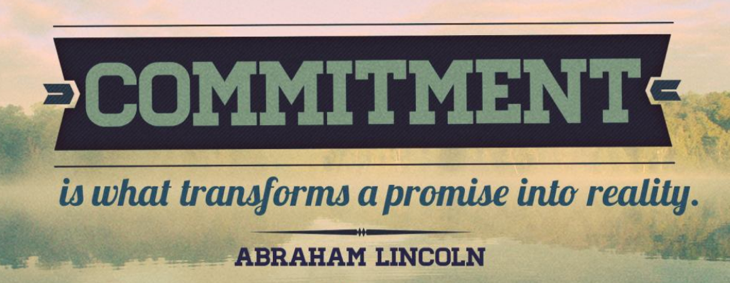
For Example
Over time I have included the following in my heroic code (the combination has changed):
- I face challenges directly (usually good at this, but not always)
- I never diminish another (very good at this)
- I am aware of my significance – of what I am doing and why – bringing my best where it is needed (fairly good at this, but it comes and goes)
- I always take one more step than required (pretty good at this)
- I am kind (good at this)
- I am open to learning – not needing to be perfect (fairly good at this)
- I am disciplined and focused (Not good at this)
I am only one, but I am one. I cannot do everything, but I can do something. And I will not let what I cannot do interfere with what I can do.
Edward Everett
Hale
Living by a Code – It’s a Challenge
Creating a heroic code is the first step. That is surprisingly challenging because it’s really about clearly committing to what’s important to you about how you conduct your life. Living by that code is the second step.
- Your code will sometimes ask you to do more than you want to do or ask that you take on uncomfortable actions
- It can be tough when you don’t live up to your code and have to own that (it happens to everyone)
- The toughest part is that sometimes living by your code means you won’t fit into a group or a relationship – or will strain those relationships. Those will be groups or relationships that probably aren’t good for you, but it’s still tough to not fit in.
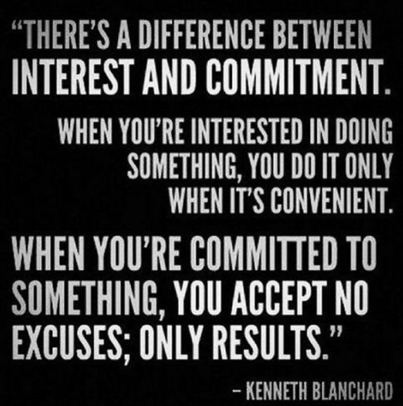
Being True to Your Code
“How am I doing?” That is a good question to ask yourself informally and frequently. The key is to take pride in how you have lived according to your code, acknowledge where you may have stumbled, learn from the experience and determine the actions you want to take.
- How have I lived according to my code in the last month or two?
- Where have I nor lived up to my code? How might I have behaved differently?
- What can I learn from that experience? About myself, about others, about life?
- What actions do I want to focus on now? Keep doing? Start doing? Stop doing?
A Note on the Importance of Support
What has made a big difference for me is letting others know what my code is and having them support (and challenge) me in following it. I can simply ask people I trust, “How am I doing?” in regard to the code to which I have committed. They will help me answer the questions noted above.
Remember – life, like being a teenager, is a team sport.
Wisdom is knowing which road to take. Integrity is taking it.
Anonymous
To embark on the journey toward your goals and dreams requires bravery. To remain on that path requires courage. The bridge that merges the two is commitment.
Dr. Steve
Mariboli
